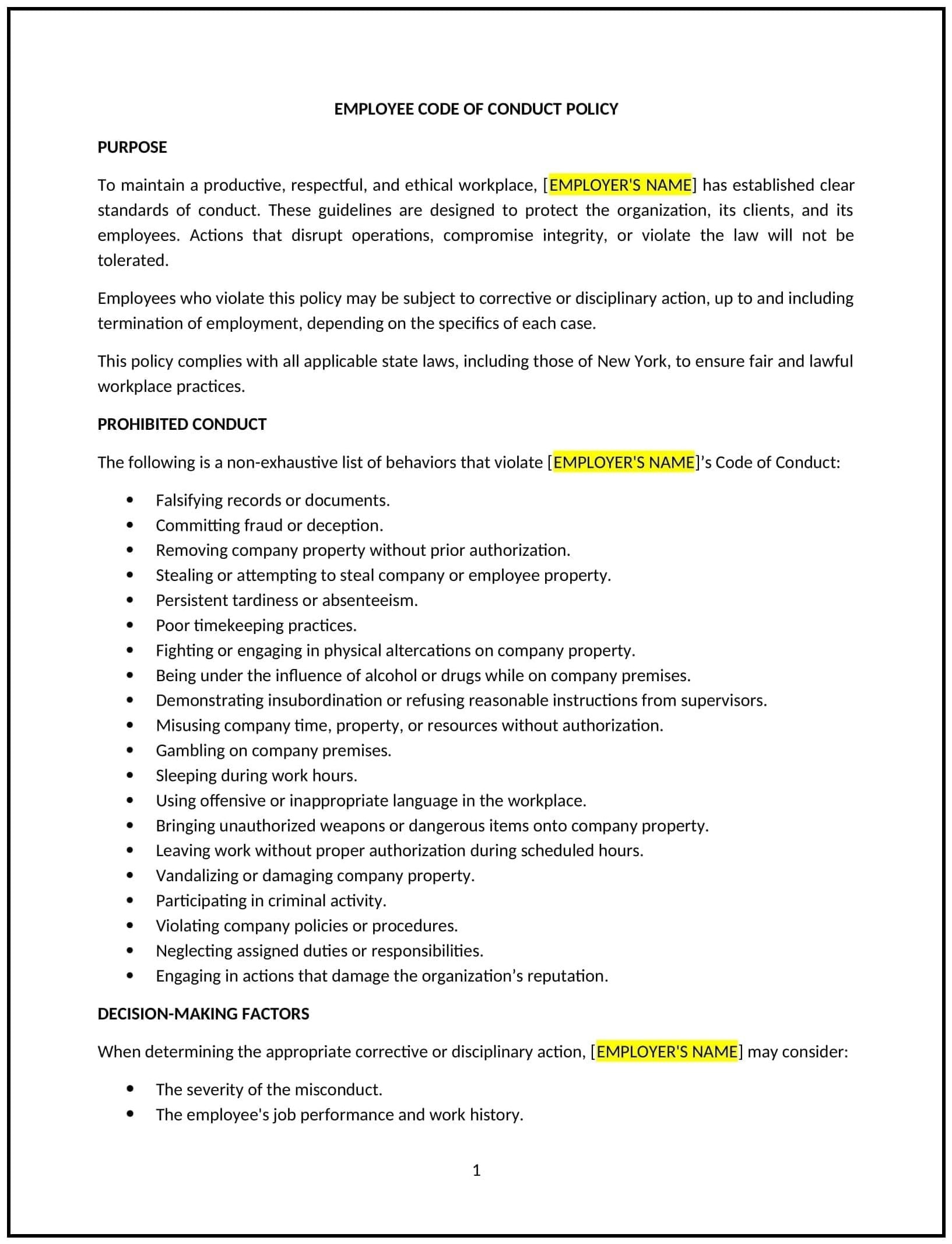Standards of conduct policy (New York): Free template
Got contracts to review? While you're here for policies, let Cobrief make contract review effortless—start your free review now.

Customize this template for free
Standards of conduct policy (New York)
This standards of conduct policy is designed to help New York businesses establish clear expectations for employee behavior and professional conduct in the workplace. Whether businesses are addressing issues of ethics, workplace behavior, or job performance, this template provides a structured approach to managing conduct in a way that promotes a positive, productive, and respectful work environment.
By adopting this template, businesses can create a culture of accountability, promote respectful interactions, and ensure consistency in the enforcement of company policies.
How to use this standards of conduct policy (New York)
- Define acceptable behavior: Clearly outline the behaviors that are expected of employees, including professionalism, respect for others, and adherence to company policies.
- Set consequences for misconduct: Detail the types of misconduct that could result in disciplinary action, such as insubordination, harassment, or violations of company policies.
- Address workplace ethics: Specify expectations for ethical behavior in business operations, such as honesty, integrity, and transparency in dealings with customers, colleagues, and stakeholders.
- Promote inclusivity and respect: Emphasize the importance of creating a diverse and inclusive work environment, and outline expectations for treating all individuals with respect and dignity.
- Include reporting mechanisms: Provide a clear process for employees to report violations of conduct standards, ensuring that concerns can be raised confidentially and addressed promptly.
Benefits of using this standards of conduct policy (New York)
This policy offers several benefits for New York businesses:
- Promotes a positive workplace culture: Clear expectations for conduct help foster a respectful and collaborative work environment, reducing conflicts and enhancing teamwork.
- Supports consistency: A defined policy ensures that employees are held to the same behavioral standards, reducing the potential for favoritism or misunderstandings.
- Minimizes legal risks: Addressing issues like harassment, discrimination, and ethics upfront can help prevent legal disputes and ensure compliance with New York labor laws.
- Enhances employee accountability: Employees who understand the standards of conduct are more likely to follow the guidelines, leading to greater accountability and responsibility.
- Improves company reputation: A strong commitment to ethical behavior and professionalism enhances the company’s image with employees, customers, and the public.
Tips for using this standards of conduct policy (New York)
- Communicate clearly: Ensure that all employees are aware of the policy and understand the standards of behavior expected in the workplace.
- Provide training: Offer regular training on workplace conduct, ethics, and company expectations to help employees understand and follow the policy.
- Enforce consistently: Apply the policy fairly across all employees, addressing misconduct in a timely and consistent manner to maintain trust and integrity in the workplace.
- Encourage open communication: Create an environment where employees feel comfortable reporting violations or concerns without fear of retaliation.
- Review regularly: Update the policy to reflect changes in workplace practices, employee feedback, or New York state regulations.